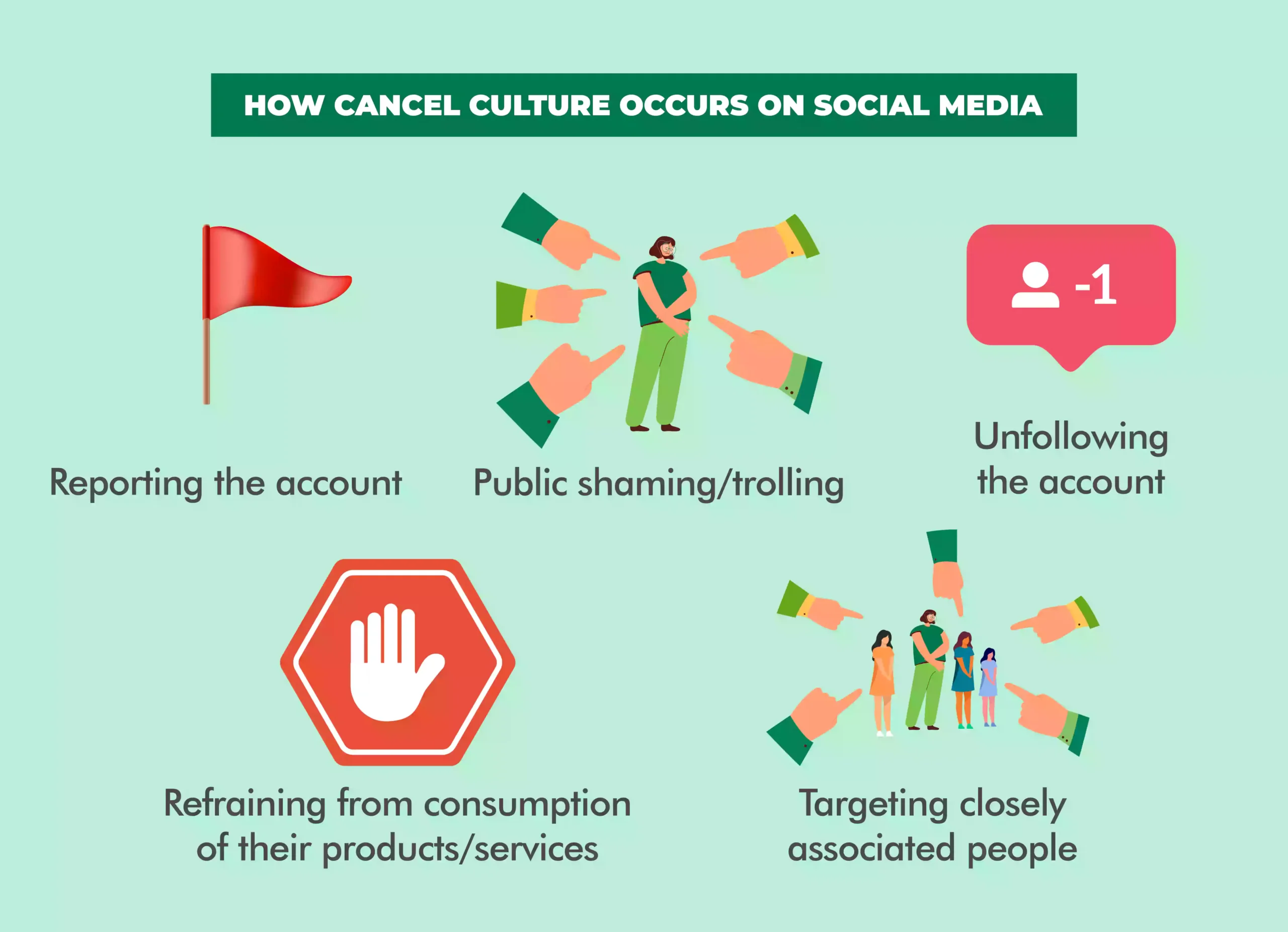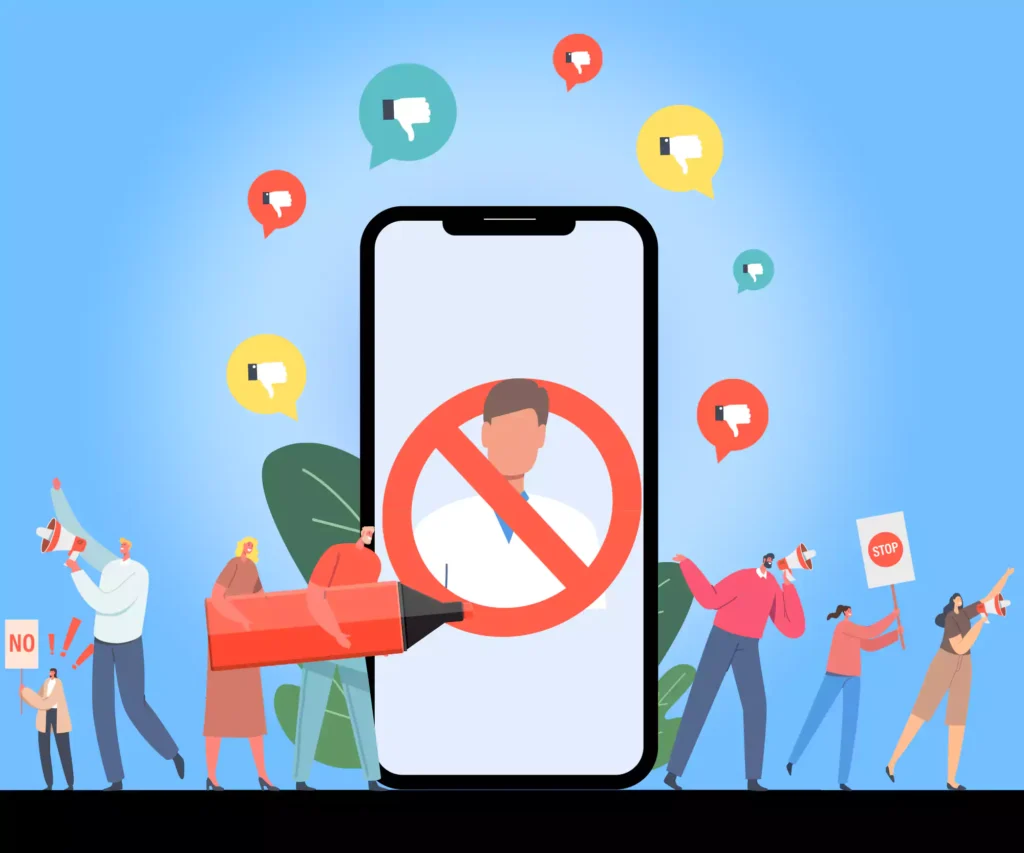Cancel culture—promoting the “cancelling” of people, shows, brands, and movies due to what some consider problematic/offensive—isn’t all that new. To trace its origin, the American music artist Nile Rodgers wrote a song called Your love is cancelled for a partner who spurned him. Later, the film New Jack City (1991) gave a misogynistic angle to the song. Since then, the “cancelling” out of things/people has only gotten more popular and, at times, even fashionable. Cancel culture predominantly registers one’s vehement opposition to any oppression like sexism, racism, homophobia, ableism, etc.
Does that make this term a general way of calling out and public shaming? Besides, there are also notions of people using this term to seem ‘woke’ on social media. Many are of the opinion that the overuse of the term has threatened free speech and expression. While others see it as an extension of extreme political correctness that hinders the possibility of a dialogue between opposing ideologies.
Cancel culture as a form of social (media) justice
In the age of fast internet, there’s no doubt about the incredible amount of contribution social media has had on popularising the phenomenon of cancel culture. And terms with social implications must also be reviewed for how they contribute to social justice.
Social media is not a space that can be taken as a realistic representation of society. People, especially celebs, influencers, and those in positions of power, maintain fabricated images of themselves. Many of their true selves remain largely hidden under this facade. In such a scenario, Anne Charity Hudley (chair of Linguistics of African America for the University of California, Santa Barbara) explains how cancel culture holds a mirror up to celebrities. They have risen to fame because of their fans. Therefore, it makes them accountable and responsible to the same fans. Thus, cancel culture makes it easier to keep a check on their actions and behaviour through the realm of social media. This is an assurance of the existence of social media justice for both the privileged and not-so-privileged.

The flip side
Now the question is, does cancel culture serve true justice in every situation? You must’ve heard about how the author of the Harry Potter series, J K Rowling, took Twitter by storm with her insensitive remarks online directed towards the transgender community. She faced the wrath of cancel culture multiple times and received serious backlash from a huge audience. The good thing to come out of this controversy is that more conversations sprung around the nuances of the LGBTQ+ community. However, there were also fans who sympathised with her and stood by her side. In fact, when she published a new series, she got phenomenal responses and sales. This case has been by far the classic example of cancel culture in recent years.
On the other hand, this phenomenon has also negatively impacted and severely reconfigured the careers of many. For instance, comedians Aziz Ansari and Louis CK were “cancelled” by their fans because of sexual misconduct and sexual assault. However, both have managed to get past these accusations with the help of Netflix specials and comeback tours. This means even if concerned people raise their voices against notorious and irresponsible celebs, things might sometimes favour the aggressors. This makes one wonder—is cancel culture really making any change at all? Or is any publicity really good publicity?
Is cancel culture ethically justifiable?
The ethicality of cancel culture always comes up under question. It blurs the line between what is ‘acceptable’ and what is deemed ‘unacceptable’. There is no one to decipher who is right and wrong, as the jury is a large audience with many opinions. But they all come under one umbrella of cancel culture. This is not to forget the play of subjectivity and biases that might rule these opinions. More often than not, the larger issue gets left behind in the feud of cancelling out a person or a group. In addition, they remain far from being resolved. It may also be counterintuitive and unclear how long the ‘sentencing’ should be observed. Some may find it disproportionate to the offence, and others may see it as encouraging vigilantism.
As a result, it raises more questions than providing answers, which is not enough to effect authentic, positive changes. Nevertheless, social media has definitely provided a platform that opens up more avenues to raise concerns and call out problematic behaviours. Moreover, the entire cancel culture thrives on conformity, and if you are a member of a group cancelling another party, you could be cancelled, too, based on your conformity. So, should cancel culture be allowed to persist or should it be reviewed? We think the jury is still out.

